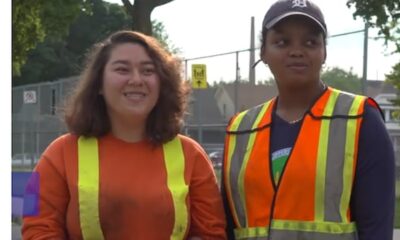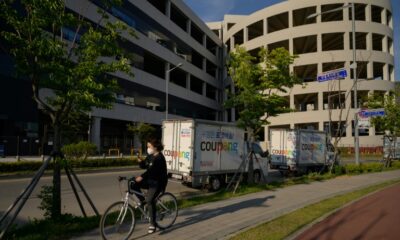Politics
Trevor Hancock Advocates for Dialogue on Regional Future

Trevor Hancock, a prominent public health expert, has called for an open dialogue about the future of the region. In a recent discussion, Hancock emphasized the need for local communities to engage actively in shaping their destinies rather than solely relying on government solutions.
During his address, Hancock noted a prevailing tendency to both defer to and blame government actions for various societal challenges. He argued that this reliance often leaves communities feeling powerless. Instead, he advocates for a collaborative approach where local voices contribute significantly to decision-making processes.
Empowering Communities
Hancock’s remarks come at a critical time as regions around the world grapple with issues such as health disparities, economic challenges, and environmental changes. He pointed out that effective solutions require input from those most affected by these issues. By fostering discussions at the community level, residents can articulate their needs, aspirations, and potential solutions.
“Communities hold valuable insights that can lead to innovative and sustainable solutions that government alone may not envision,” Hancock stated. He believes that empowering local citizens will not only enhance community resilience but also promote a sense of ownership over the future.
Shifting Perspectives
This shift in perspective is crucial as governments often face constraints in addressing every local concern. By enabling community participation, officials can better understand the unique challenges and opportunities that exist within different areas. This approach aligns with global trends advocating for decentralized governance and inclusive policymaking.
Hancock’s call to action resonates with ongoing initiatives aimed at strengthening community engagement. Various local organizations are already working to bridge the gap between citizens and policymakers. Programs encouraging public forums, feedback mechanisms, and collaborative projects are examples of how communities can take charge of their futures.
The dialogue on the region’s future is not just about addressing current problems; it is also about envisioning a sustainable path forward. Hancock’s vision promotes long-term planning that considers economic, environmental, and social factors, ensuring that all community members are part of the conversation.
As discussions continue, the hope is that local communities will recognize their power and potential to influence the future positively. The responsibility lies not only with government but also with every individual who cares about their community’s well-being.
In conclusion, Hancock’s advocacy for a more engaged citizenry highlights the importance of collective action in shaping regional outcomes. By prioritizing conversations that include diverse voices, communities can create a future that truly reflects their values and aspirations.
-

 Politics4 weeks ago
Politics4 weeks agoSecwepemc First Nation Seeks Aboriginal Title Over Kamloops Area
-

 World5 months ago
World5 months agoScientists Unearth Ancient Antarctic Ice to Unlock Climate Secrets
-

 Entertainment5 months ago
Entertainment5 months agoTrump and McCormick to Announce $70 Billion Energy Investments
-

 Science5 months ago
Science5 months agoFour Astronauts Return to Earth After International Space Station Mission
-

 Lifestyle5 months ago
Lifestyle5 months agoTransLink Launches Food Truck Program to Boost Revenue in Vancouver
-

 Technology3 months ago
Technology3 months agoApple Notes Enhances Functionality with Markdown Support in macOS 26
-

 Lifestyle3 months ago
Lifestyle3 months agoManitoba’s Burger Champion Shines Again Amid Dining Innovations
-

 Top Stories2 months ago
Top Stories2 months agoUrgent Update: Fatal Crash on Highway 99 Claims Life of Pitt Meadows Man
-

 Politics4 months ago
Politics4 months agoUkrainian Tennis Star Elina Svitolina Faces Death Threats Online
-

 Sports5 months ago
Sports5 months agoSearch Underway for Missing Hunter Amid Hokkaido Bear Emergency
-

 Politics5 months ago
Politics5 months agoCarney Engages First Nations Leaders at Development Law Summit
-

 Technology5 months ago
Technology5 months agoFrosthaven Launches Early Access on July 31, 2025





















